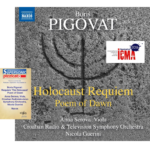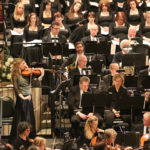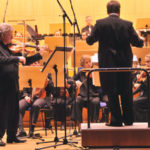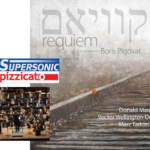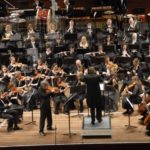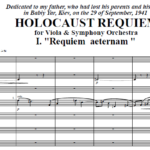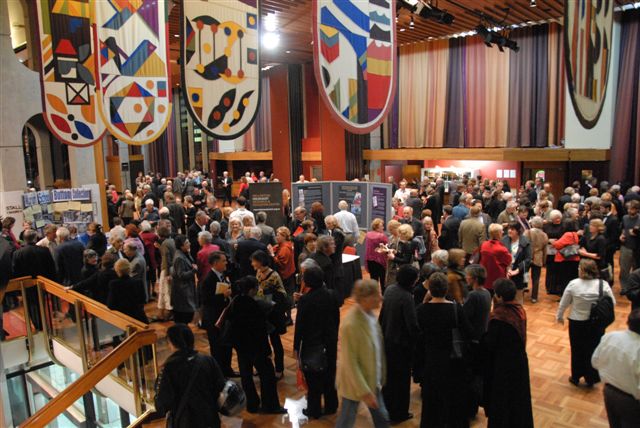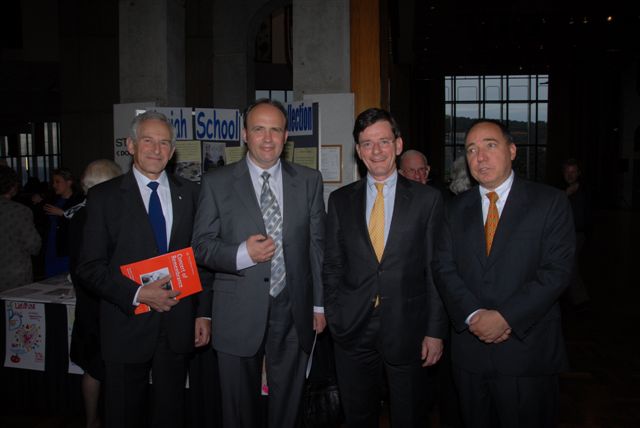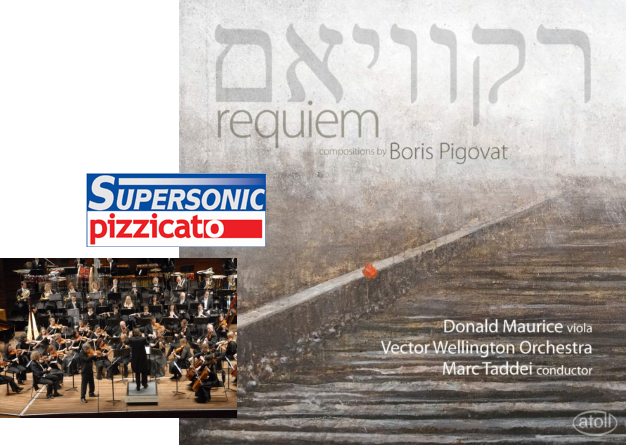
Tag: Kristallnacht 2008


Nov, 2010: Launch of "Requiem" CD by Atoll, New Zealand
In November 2010, two years after the performance of Requiem at the the Concert of Remembrance for Kristallnacht 1938 at Wellington, a live recording of the concert was released by Atoll. This recording also includes three of my other pieces, featuring my dear friend, Donald Maurice (viola), and other great performers. The CD includes the following pieces:
Prayer for Viola and Piano
Donald Mautice, Viola
Richard Mapp, Piano
Silent Music for Viola and Harp
Donald Maurice, Viola
Carolyn Mills, Harp
Nigun for String Quartet
Dominion String Quartet
Dwight Pounds reviewed the disc in the Journal Of The American Viola Society, he writes:
Completing the album and complementing the Requiem musically and emotionally are three small ensemble compositions, each by Boris Pigovat. The very dramatic and tragic Prayer was written the same year as the Lux Eterna (1994) and in fact shares at least one common theme. Silent Music, known in Hebrew as Nerot Neshama (Candles of the Soul), was written in 1997 in response to a particularly vicious terrorist attack. In Nigun, conceived originally for string orchestra, Pigovat’s goal is to give “expression to the tragic spirit which I feel in traditional Jewish music” by giving homage to the style and spiritual atmosphere of ancient tunes, but without quoting traditional melodies.
In 2012, the Requiem CD was awarded a Supersonic Award by the Luxembourg classical music magazine Pizzicato.
Below are some samples from the CD.
Live recording of "Requiem" (samples)
Donald Maurice, Viola
Mark Taddei, Conductor
Vector Wellington Orchestra
Part 4 “Lux Aeterna” published by Atoll in YouTube
Prayer for Viola and Piano (samples)
Donald Maurice, Viola
Richard Mapp, Piano
Silent Music for Viola and Harp
Donald Maurice, Viola
Carolyn Mills, Harp
Nigun for String Quartet (samples)
Donald Maurice’s solo playing vividly captures the music’s gamut of supplicatory emotion, while Marc Taddei and the orchestra provide an accompaniment richly-mixed with ambiences of faith and trust, doubt and fear.
Wellington, NZ
This is a most extraordinary release. I guarantee it contains music like you’ve never heard before and that will leave you emotionally shattered and physically drained. …the performance and the recording are stunning, impactful, and overwhelming.
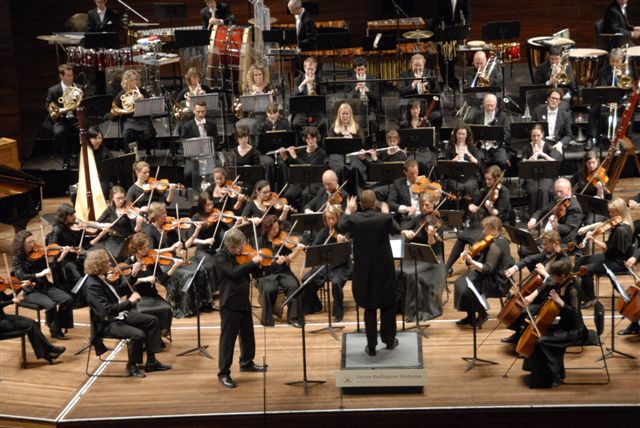
Nov, 2008: Concert of Remembrance of 70th Anniversary of Kristallnacht, Wellington, New Zealand
Holocaust Requiem was performed for it’s second time at the Concert of Remembrance for the 70th Anniversary of Kristallnacht.
The outstanding performance by violist Dr. Donald Maurice, Professor of Music at the New Zealand School of Music in Wellington, conductor Mark Taddei, and Vector Wellington Orchestra, was widely reviewed by local and international media.
Later, Donald Maurice remembered:
The performance was in 2008 but is indelibly etched into my memory. Many people were in tears. I myself said, ‘I must not cry!’” Commenting on the composition’s future and potential for effecting change, he observed, “It needs to be performed often as a reminder of the effects of war and the circumstances that precipitate one culture wanting to dominate or annihilate another.
A live recording of Requiem from the event was released by Atoll, in November 2010, with other pieces of mine.
Here is an audio recording of an interview given by Donald Maurice and Marc Taddei to Radio New Zealand (Nov 2008).
Below are some samples of that amazing performance and some photos from the event.
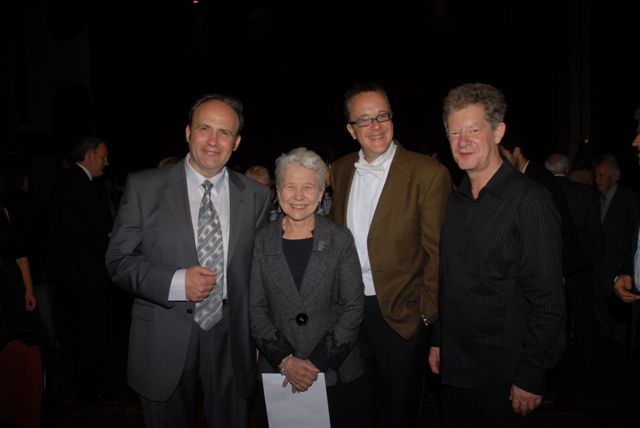
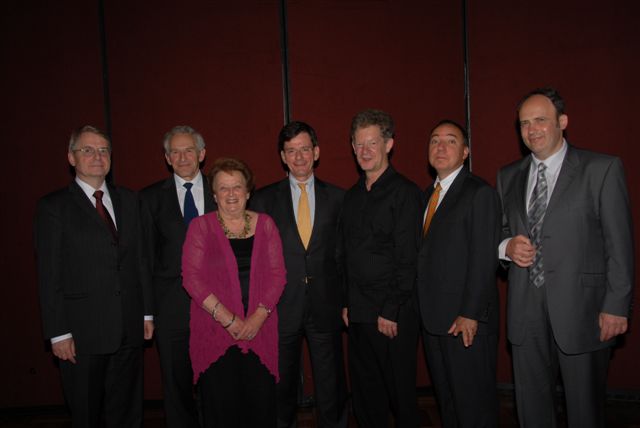
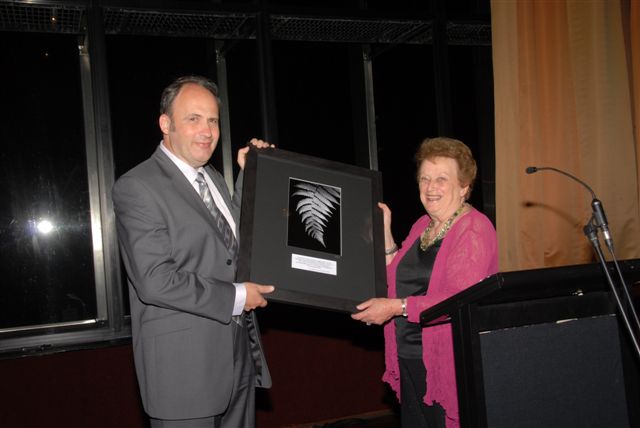
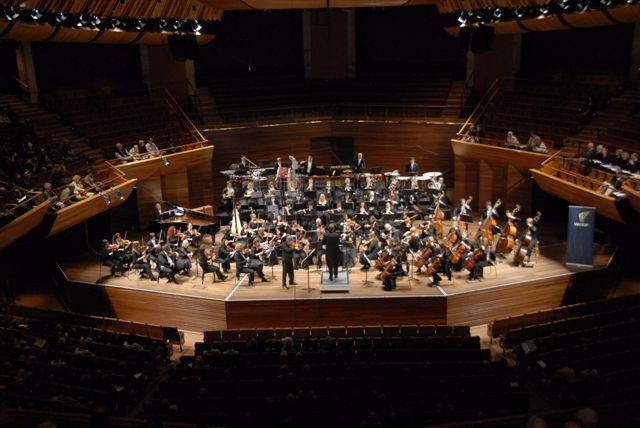

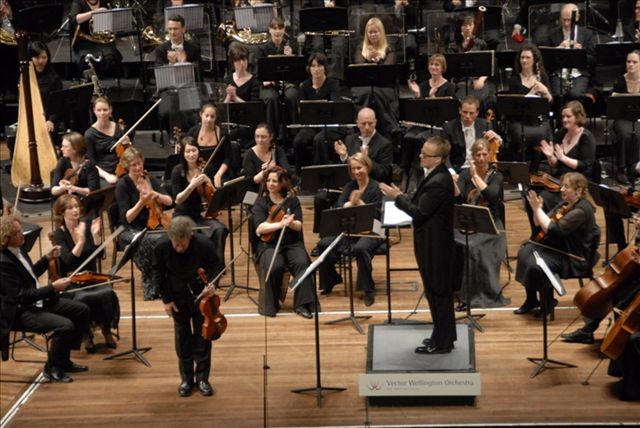
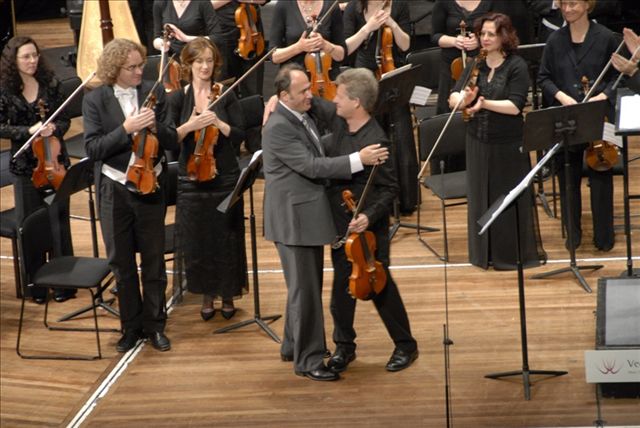
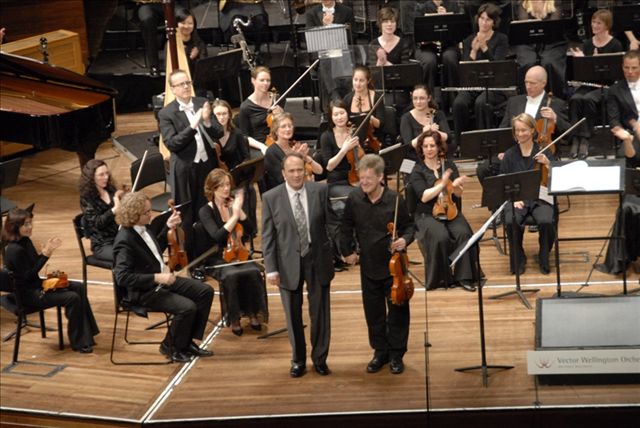
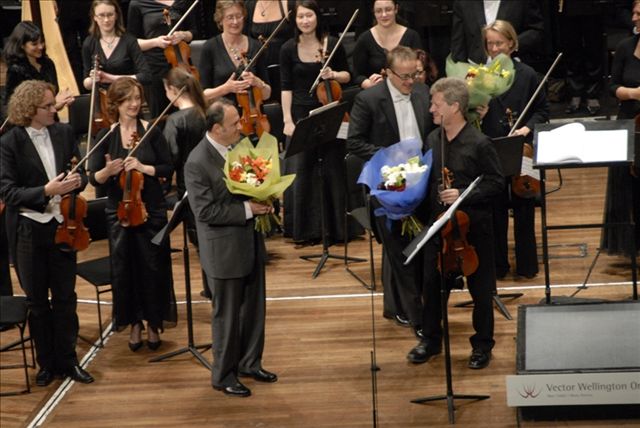
Requiem “The Holocaust” is not music for the faint of heart. The listener is drawn inexorably into the unfolding tragedy... Pigovat runs a stylistic gamut from tonal to expressionistic with hints of Berg and Shostakovich as he gradually unfolds his nightmare. Though instrumental throughout, there are times one can hear “Re—qui-em” among the many busy layers of musical texture.
The Music is harrowing and tense, and very Russian in sound. Echoes of contemporary composers such as Denisov, Kanchelli and Gubaidulina can be heard, as well as the inexorable thread of Shostakovich in the Dies Irae, but the voice of the composer remains highly individual. Balancing the violence, anger and tension is the conciliatory beauty of the Lux Eterna that rounds out a work of deeply felt power.
Using purely orchestral forces this 46-minute symphonic-concerto encompasses ear-splitting anguish, horror and confusion -- tolling tintinnabulations mark the outset of unspeakable atrocities while abject grief is heightened by sonorous lamentations of the solo viola; a role of unusually formidable demands.
Pigovat's music is evocative and distuibing in its depiction of the Holocaust. With styles reminiscent of other Russian composers, including the rich melancholy of Shostakovich the
compositional style is still distinctly Pigovat's own.
Intense and strongly assured it is a life-affirming piece that makes a telling statemen with subtlety.

